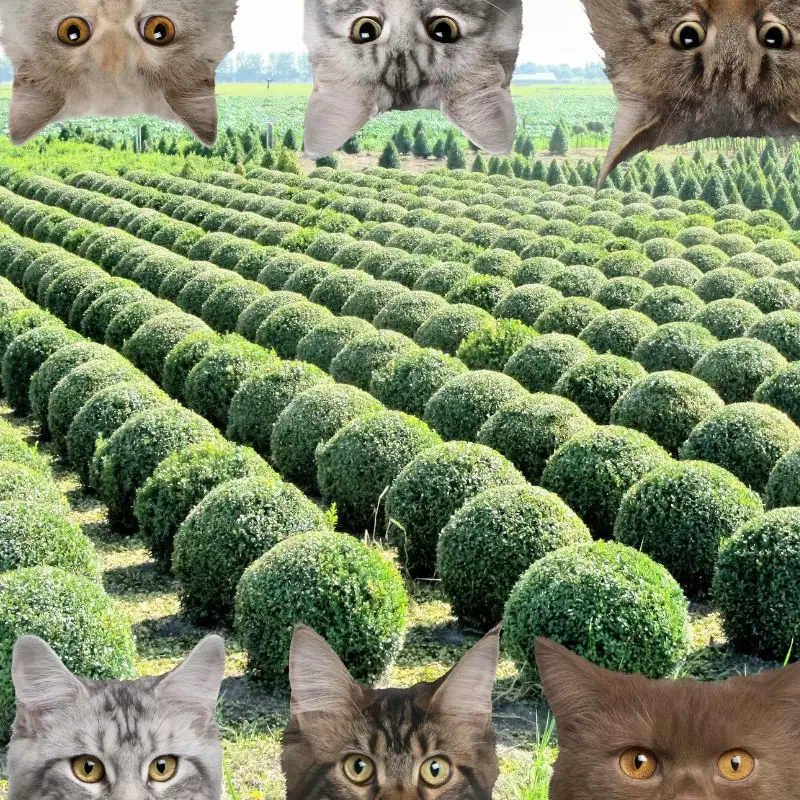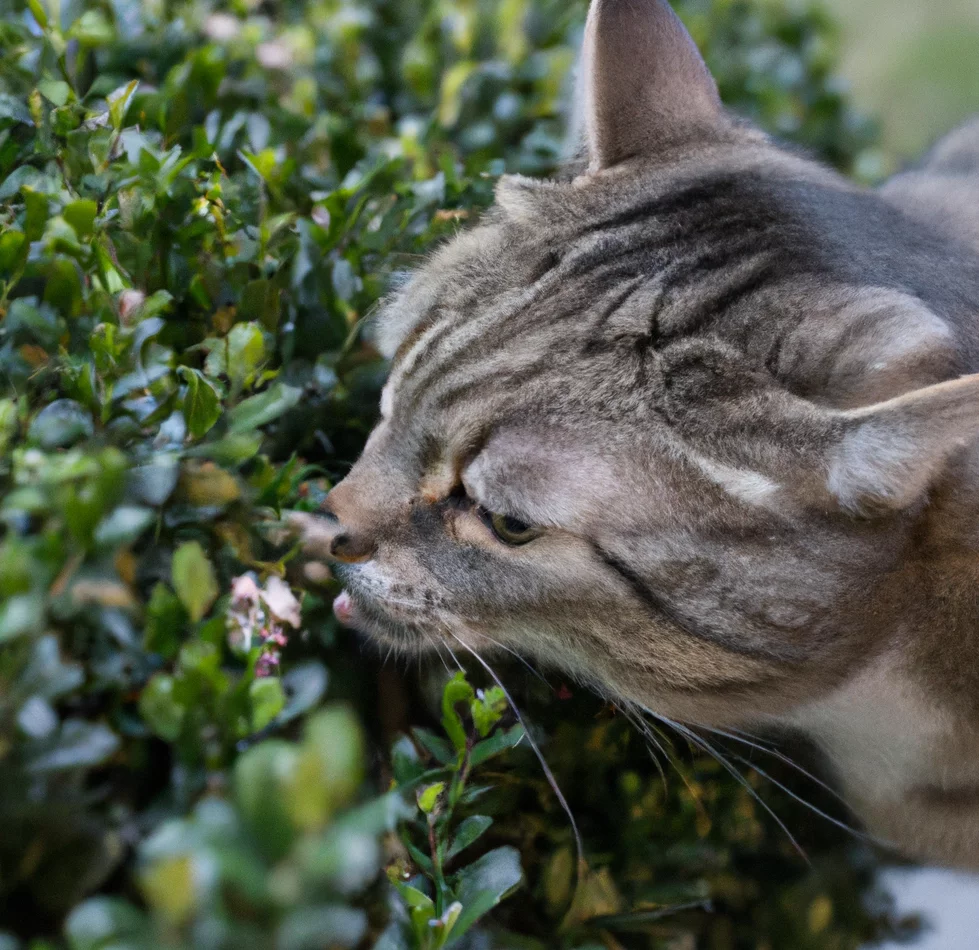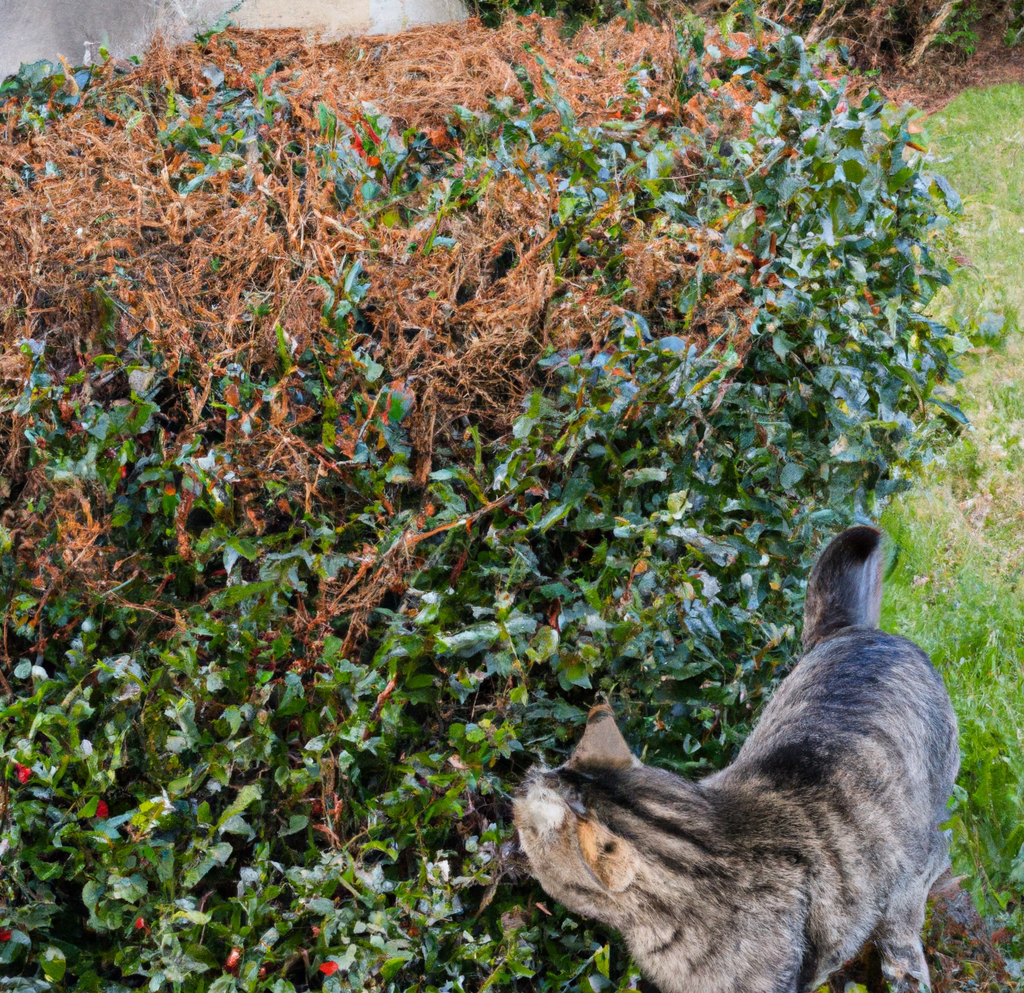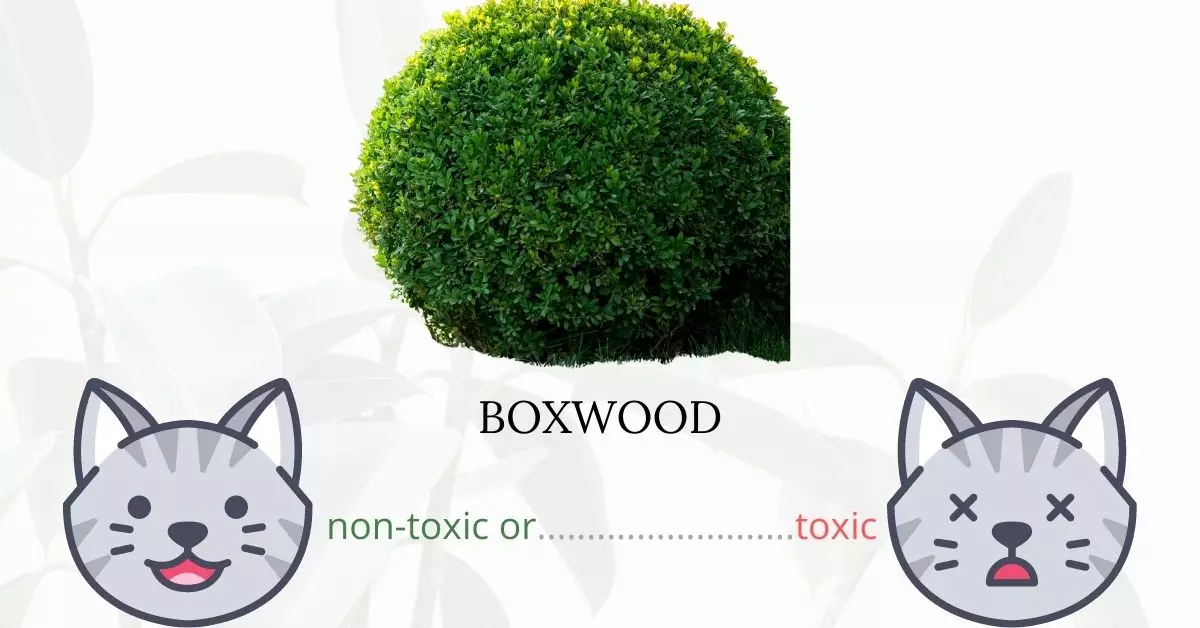Yes, boxwood is toxic to cats. The boxwood plant contains harmful alkaloids such as buxine, cyclobuxine, and cylcoprotobuxine. If ingested, these compounds can cause symptoms like vomiting and diarrhea in cats, and in rare instances of large consumption, it can even be lethal. However, it’s noteworthy that the plant’s exceedingly bitter taste often deters many animals, including cats, from consuming significant amounts. Importantly, the toxicity remains even if the plant has dried.
This article is a result of collaboration with a team of experienced DVMs (doctors of veterinary medicine). With their expertise, we strive to provide readers with accurate and up-to-date information on the potential risks associated with various plants, focusing on boxwood in this context. Furthermore, we have cross-referenced our findings with high-authority sources such as ASPCA and PetMD to ensure a comprehensive understanding for our readers.
Clinical Signs of Boxwood Poisoning in Cats

Boxwood, due to its alkaloids like buxine, cyclobuxine, and cylcoprotobuxine, can have adverse effects on cats when ingested, smelled, or even touched in some cases. While it’s rare for cats to consume significant portions of the plant because of its bitter taste, potential exposure can lead to a range of clinical symptoms. It’s crucial to recognize these signs early and consult a veterinarian. Here’s a breakdown of the symptoms and their causes:
- Vomiting: This is a common response when cats ingest substances that their body identifies as toxic. It’s the body’s way of trying to expel the harmful compounds from the system.
- Diarrhea: The cat’s digestive system reacts to the poisonous alkaloids, causing irritation in the intestines and leading to diarrhea.
- Abdominal Pain: The toxins in boxwood can irritate the gastrointestinal tract, leading to discomfort and pain in the abdominal area.
- Intense Gas: The alkaloids can cause excessive gas production in the stomach and intestines, leading to bloating and discomfort.
- Agitation: The toxins can have neurological effects, causing restlessness and increased sensitivity or reactivity in cats.
- Lethargy: Contrary to agitation, some cats might show signs of fatigue or reduced energy levels. This is due to the body’s general response to toxins as it attempts to conserve energy and heal.
- Convulsions: Severe boxwood poisoning can interfere with the cat’s neural functions, leading to spasms or seizures.
- Respiratory Arrest: In extreme cases, the toxins can depress the cat’s respiratory system to the point of respiratory failure or arrest.
- Paralysis: A cat’s nervous system might be severely affected by high doses of boxwood toxins, leading to temporary or permanent paralysis in extreme cases.
If your cat shows any of these symptoms after contact with the boxwood plant, seek immediate veterinary attention.
First Aid and Treatment of Boxwood Poisoning in Cats

Your cat will receive veterinary care to address the symptoms he or she is experiencing and, if necessary, to assist stabilize the cat. To facilitate healing, everything should be done to keep the cat comfortable.
Remove all of the leaf debris from the cat’s mouth if you caught it devouring a boxwood shrub. The vet may induce vomiting to eliminate any residue of toxins from your cat’s system.
If the cat’s condition is serious, he or she will need to be admitted to the hospital. After an extended period of vomiting or diarrhea, intravenous fluid treatment may be required to thoroughly hydrate the cat. Medications may be also prescribed by the veterinarian accordingly as needed by your cat.
Recovery from Boxwood Poisoning in Cats

In most cases, ingesting boxwood plants has no serious adverse effects or long-term consequences in cats. After the acute sickness has subsided, the majority of cats who have consumed boxwood recover completely. If your veterinarian advised a change in your cat’s diet, make sure to follow his advice. Make your cat comfortable at home so he or she can recuperate quickly.
Prevention of Boxwood Poisoning in Cats
To keep your cat safe from boxwood poisoning make sure to limit or eliminate all contact with the said plant. Keeping your cat inside will protect it from being exposed to boxwood or other toxic plants in your neighbors’ gardens. Utilize your cat playpens or cat houses or build fences and install safety nets around your house to restrict your cat from going outside. Before putting any plant arrangements into your home, make sure they do not include toxic plants.
If you love plants but have cats at home, check out these lists:





